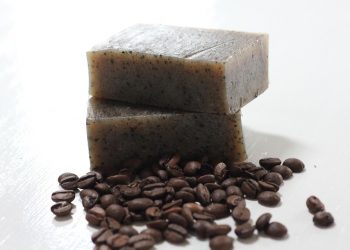Did you know that your gut contains trillions of microorganisms? That’s right—our intestines are home to a bustling community of bacteria that play a crucial role in our overall health. If you’re wondering how to keep that community thriving, you’re in luck. One of the most underrated heroes in the world of gut health is asparagus. Not only is it delicious, but it’s also packed with prebiotics that feed those beneficial gut bacteria. Let’s dive into five scrumptious ways to incorporate asparagus into your diet to boost your gut flora.
Contents
Why Asparagus?
Before we get into the recipes, let’s chat about why asparagus is so great for your gut. Asparagus is a powerhouse of nutrients, including vitamins A, C, E, and K, as well as fiber and folate. But what sets it apart is its high content of inulin, a type of prebiotic fiber. Prebiotics are essentially food for probiotics—the good bacteria in your gut. Research shows that a diet rich in prebiotics can enhance the growth of beneficial gut bacteria, improve digestion, and even boost your immune system (Slavin, 2013).
So, how can you enjoy asparagus while reaping these benefits? Here are five delicious methods.
1. Roasted Asparagus with Lemon and Parmesan
Ingredients:
- 1 bunch of fresh asparagus
- 2 tablespoons olive oil
- Salt and pepper to taste
- Zest of 1 lemon
- ¼ cup grated Parmesan cheese
Instructions:
- Preheat your oven to 425°F (220°C).
- Trim the tough ends off the asparagus and place them on a baking sheet.
- Drizzle with olive oil, and sprinkle with salt, pepper, and lemon zest.
- Roast for about 15 minutes, or until tender.
- Remove from the oven and sprinkle with Parmesan cheese. Serve hot.
Why It Works:
Roasting asparagus brings out its natural sweetness, while the lemon adds a refreshing zing. The healthy fats from olive oil help in the absorption of fat-soluble vitamins, and the Parmesan adds a savory touch. Plus, this dish is super quick and easy—perfect for a weeknight dinner!
2. Asparagus and Chickpea Salad
Ingredients:
- 1 bunch of asparagus, chopped into bite-sized pieces
- 1 can of chickpeas, rinsed and drained
- 1 cup cherry tomatoes, halved
- ¼ cup red onion, finely chopped
- 2 tablespoons olive oil
- 1 tablespoon balsamic vinegar
- Salt and pepper to taste
Instructions:
- Blanch the asparagus in boiling water for 2-3 minutes, then transfer to an ice bath to stop the cooking.
- In a large bowl, combine the chickpeas, cherry tomatoes, red onion, and cooled asparagus.
- Drizzle with olive oil and balsamic vinegar, and season with salt and pepper. Toss to combine.
Why It Works:
This salad is not only vibrant and filling but also a fantastic source of protein and fiber. Chickpeas are another great source of prebiotics, making this dish double-duty for your gut health. Plus, it’s perfect for meal prep!
3. Creamy Asparagus Soup
Ingredients:
- 1 bunch of asparagus, trimmed and chopped
- 1 medium onion, chopped
- 2 cloves garlic, minced
- 4 cups vegetable broth
- 1 cup coconut milk (or cream)
- Salt and pepper to taste
- A squeeze of lemon juice
Instructions:
- In a large pot, sauté the onion and garlic until translucent.
- Add the chopped asparagus and vegetable broth, and bring to a boil. Reduce heat and simmer until the asparagus is tender, about 10 minutes.
- Blend the soup until smooth, then stir in coconut milk, salt, pepper, and lemon juice. Heat gently before serving.
Why It Works:
This creamy soup is both comforting and nutritious. The coconut milk adds a rich, velvety texture, while the asparagus provides a delightful flavor. Plus, a warm bowl of soup is a great way to soothe your gut—especially during colder months.
4. Asparagus Stir-Fry with Tofu
Ingredients:
- 1 bunch of asparagus, cut into 2-inch pieces
- 1 block of firm tofu, cubed
- 2 tablespoons soy sauce
- 1 tablespoon sesame oil
- 1 bell pepper, sliced
- 2 green onions, chopped
- 1 tablespoon ginger, minced
- 2 cloves garlic, minced
Instructions:
- Heat sesame oil in a large skillet over medium-high heat.
- Add cubed tofu and cook until golden brown. Remove from the skillet and set aside.
- In the same skillet, add ginger, garlic, and bell pepper. Sauté for a couple of minutes.
- Add asparagus and cook until bright green and tender-crisp.
- Return the tofu to the skillet, add soy sauce, and stir-fry for another minute. Serve hot.
Why It Works:
This dish is colorful, packed with protein, and full of flavor. Tofu is a great source of plant-based protein and adds a nice texture. Plus, the quick cooking method preserves the nutrients in the asparagus, making it a win-win for your gut health!
5. Asparagus Quiche
Ingredients:
- 1 pre-made pie crust
- 1 bunch of asparagus, chopped
- 4 large eggs
- 1 cup milk (or non-dairy alternative)
- 1 cup shredded cheese (e.g., cheddar or feta)
- Salt and pepper to taste
Instructions:
- Preheat your oven to 375°F (190°C).
- In a skillet, sauté the asparagus until tender.
- In a bowl, whisk together the eggs, milk, salt, and pepper. Stir in the sautéed asparagus and cheese.
- Pour the mixture into the pie crust and bake for 30-35 minutes, or until the filling is set and the top is golden.
Why It Works:
Quiche is an excellent way to sneak in veggies, and asparagus shines here. This dish can be served hot or cold, making it a versatile option for brunch or a light dinner. Plus, it’s a great source of protein and healthy fats, supporting your gut flora.
FAQs
1. How often should I eat asparagus to boost gut health?
Incorporating asparagus into your diet a few times a week can be beneficial. Variety is key, so mix it with other prebiotic foods like garlic, onions, and bananas.
2. Is it better to eat asparagus cooked or raw?
Both cooked and raw asparagus have health benefits. Cooking can enhance flavor and make it easier to digest, while raw asparagus retains more nutrients. Try both!
3. Can asparagus help with digestive issues?
Yes! Asparagus is high in fiber, which aids digestion. Its prebiotic properties can also promote a healthy balance of gut bacteria.
4. Are there any side effects to eating too much asparagus?
While asparagus is generally safe, eating too much may cause gas or bloating in some people. Moderation is key, especially if you’re not used to high-fiber foods.
Conclusion
Incorporating asparagus into your diet is not just a treat for your taste buds but also a boon for your gut health. Whether you roast it, toss it in a salad, blend it into soup, stir-fry it with tofu, or bake it into a quiche, each method amplifies its prebiotic benefits. Remember, a diverse diet rich in various prebiotics is essential for a thriving gut flora.
So, what are you waiting for? Grab a bunch of asparagus and get creative in the kitchen! Your gut will thank you.
Disclaimer: This article is for educational purposes only and is not a substitute for professional medical advice. Always consult a qualified healthcare provider before making changes to your health routine.
References
- Slavin, J. L. (2013). Fiber and prebiotics: mechanisms and health benefits. Nutrients, 5(4), 1417-1435. https://www.ncbi.nlm.nih.gov/pmc/articles/PMC3664915/
- Mayo Clinic. (n.d.). Nutrition and gut health. https://www.mayoclinic.org/healthy-lifestyle/nutrition-and-healthy-eating/in-depth/gut-health/art-20456940
- Harvard Health Publishing. (2020). The gut microbiome: What you need to know. https://www.health.harvard.edu/staying-healthy/the-gut-microbiome-what-you-need-to-know
Get Your FREE Natural Health Guide!
Subscribe now and receive our exclusive ebook packed with natural health tips, practical wellness advice, and easy lifestyle changes — delivered straight to your inbox.














